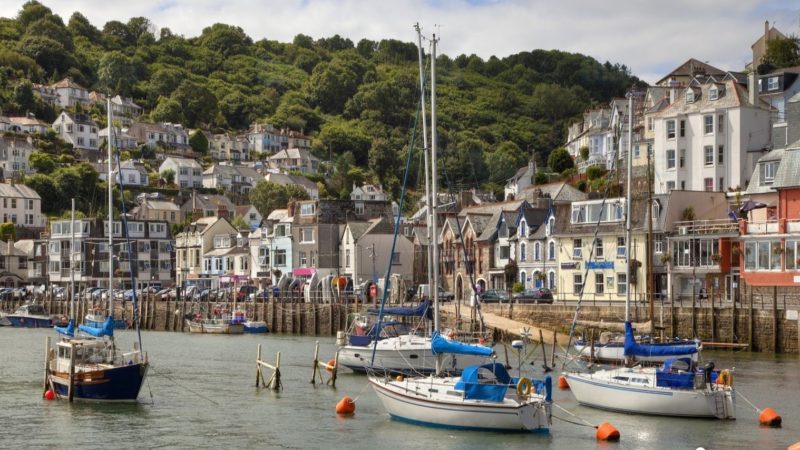This weekend people across Cornwall are marching to highlight the county's hidden cost of living crisis – and demand solutions.

Few people would know it, but the area with the highest disparity between cost of living and earnings after Kensington & Chelsea is Cornwall. And just last week, figures revealed that Cornwall is the second poorest region in northern Europe. But what does it look like in reality?
Median earnings in Cornwall are only £17,873 – just 77% of the UK average (that of course means half of people are earning less than that). Across the Southwest 24% of people earn below the national living wage.
The figure for Cornwall? A whooping 34%. But there are other inequalities which you wouldn’t immediately think about.
The housing issue is well known, given the scale of ‘second home’ buying, holiday lets and a dearth of social housing. The average house price is approximately 12 times the average Cornish wage. But take something like water rates: average water bills in England are £395. In Cornwall, they are to £491.
Why is the pay gap so large? The structure of the Cornish economy differs greatly to the rest of the UK. Only 14% of people in Cornwall work for large firms compared to a national average of 23%.
But even many large employers with national pay scales have employees doing exactly the same work, but rebranded one or two points lower down their pay scales.
High-performing companies like accountants employ juniors and trainees on much lower rates than they would expect to be paid elsewhere. Why? Because they can. And let’s not forget that many of the big businesses are low-pay high street retailers – ones which make extraordinary profits while ‘offshoring’ to avoid tax.
But talk of a pay rise in Cornwall and many people fear the impact on the above-average number of people employed in small and medium enterprises.
The fear is that these enterprises could not afford to pay their employees more and keep on trading. The exact same fears were perpetuated by economists prior to Labour bringing in the national minimum wage in 1998.
Yet the concerns were proved to be unfounded: there was no significant collapse of businesses once the new law was brought in, and employment continued to rise. The significant factor for the Cornish economy is the multiplier effect – put simply, if you put more money into the pockets of those that need it most, they spend it straight away. That money goes back into the economy, then into the pocket of someone else who needs it and spends it. The money circulates and the process repeats.
So while there may be a short period of adjustment, raising the national minimum wage to the level of a real living wage (Labour’s suggested rate of £10 an hour) would benefit everyone in Cornwall significantly.
What else could be done? Renationalising water could have a significant impact, replacing dividend payouts with lower costs. Housing remains the key issue though.
A postman working in Truro told me he pays 75% of his household income on rent and bills. Housing benefit only covers 1/4 of his rent. The rest of his household income comes from tax credits and his partner’s part-time earnings, which just about pays for the food. Affording clothes for their children and other emergency payments are a constant source of stress.
Low pay has other effects too. Recruitment for our essential sectors, for example. While greater numbers of people are choosing Cornwall for retirement, care is a growth area. Yet the cost of living disparity is so significant in Cornwall that companies are struggle to recruit the staff.
A young couple – both working as supervisors in care facilities – told me they struggle to pay the bills after childcare and their mortgage. Their house is an ‘affordable home’. But 80% of market rate (or nine times the average salary) in Cornwall is still unaffordable for most.
A significant council house building program, reflecting the real level of need, would do a lot to re-balance the housing market and provide secure affordable homes for many in desperate need. And limiting the number of second homes each village and town has to accept would put a cap on spiralling prices and unlimited demand.
Cornwall’s cost of living crisis is an under-recognised one. On Saturday, we will march in Truro to say Cornwall Needs a Pay Rise’. Joined by TUC General Secretary Frances O’Grady, we are raising the problem – and the alternatives.
Jennifer Forbes is a TUC Tutor, and a Labour activist in Truro and Falmouth CLP




3 Responses to “Cornwall is the UK’s centre of inequality. Here’s what needs to be done”
Bob Trevail
Well that’s a shock. I wouldn’t have known if you hadn’t pointed out how unfair life is. If you want more in life try harder. Google my company, I started with not a lot but worked hard, I’m over retirement age but keep working as I don’t have a public service pension.
Carole Liesse
Cornwall is in the 14% of the poorest counties in Europe. This has meant Cornwall has had substancial European Grants. This has not just enabled big projects like the University and the new airport runway. But thousands of community projects helping people come together and get out of the poverty trap such as Clay talks. We will not only loose this funding with Brexit. Also the Government embarrassment and that year on year of the whole of Europe know the extent of the poverty in Cornwall. Something I suspect they would rather keep hidden.
Monica Winter
I cannot make it to join your march, however, I support you in all the issues stated above 100%.